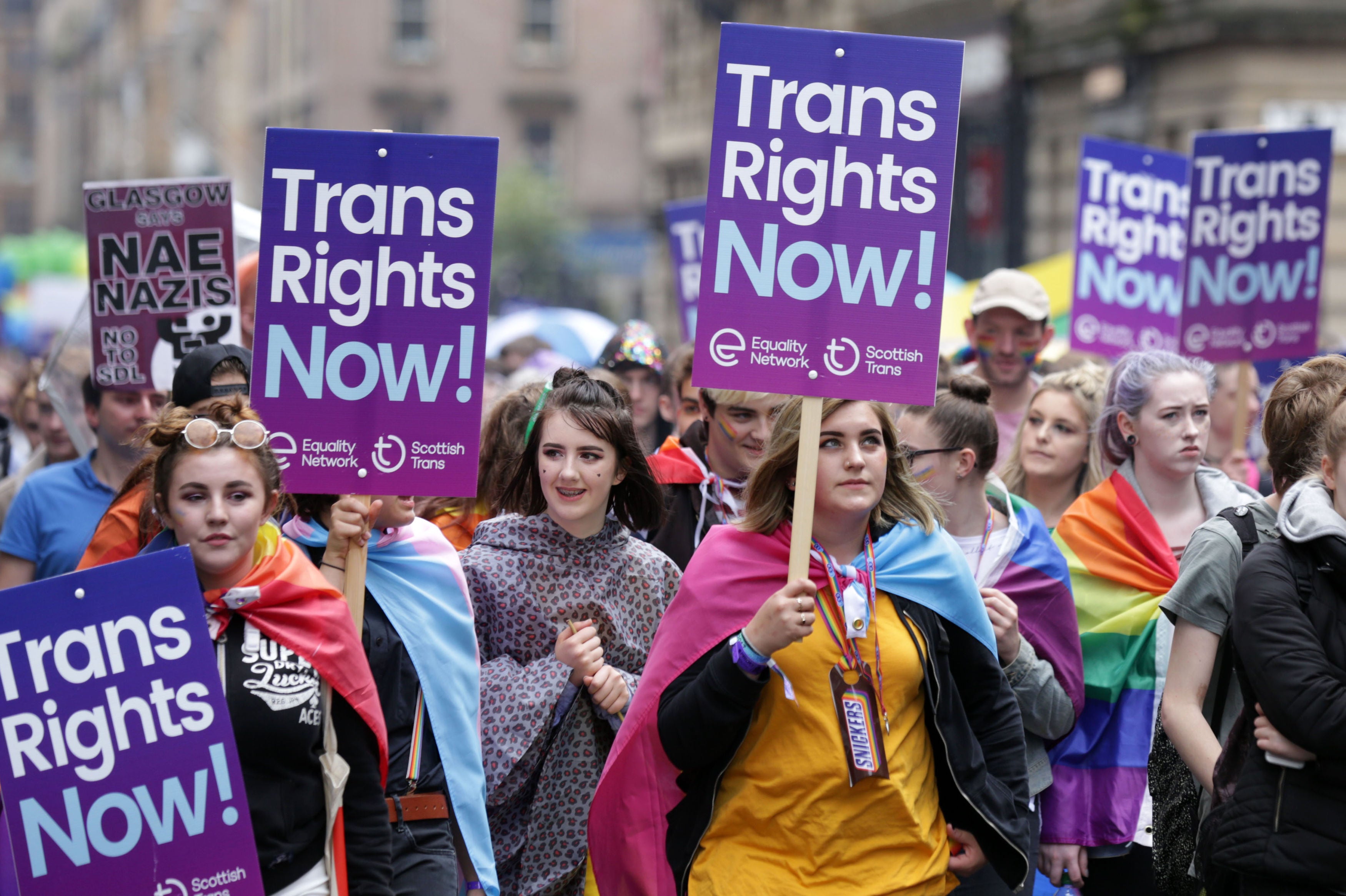Call for Scottish Government to pause on gender recognition reforms
The Equality and Human Rights Commission insisted more time is needed before changes are made to the law on gender recognition.

Your support helps us to tell the story
From reproductive rights to climate change to Big Tech, The Independent is on the ground when the story is developing. Whether it's investigating the financials of Elon Musk's pro-Trump PAC or producing our latest documentary, 'The A Word', which shines a light on the American women fighting for reproductive rights, we know how important it is to parse out the facts from the messaging.
At such a critical moment in US history, we need reporters on the ground. Your donation allows us to keep sending journalists to speak to both sides of the story.
The Independent is trusted by Americans across the entire political spectrum. And unlike many other quality news outlets, we choose not to lock Americans out of our reporting and analysis with paywalls. We believe quality journalism should be available to everyone, paid for by those who can afford it.
Your support makes all the difference.A leading human rights group in the UK has said plans to change the law on gender recognition in Scotland require “further consideration”.
Scottish Government ministers have voiced proposals to reform the Gender Recognition Act to make it easier for people to change their legally recognised gender, with a bill expected at Holyrood this year.
But the Equality and Human Rights Commission (EHRC) said on Wednesday that “further consideration is needed before any change to the law should be made”.
A spokesperson for the body said “everyone’s concerns should be discussed and addressed carefully, openly and with respect, to avoid further damage and division”, but insisted more time is needed.
Stonewall a leading LGBT group, said EHRC’s statement was an attack on trans equality and said it is “deeply troubled” by the approach that the group is taking to trans people’s human rights.
“The EHRC is calling for further delays to legislation that our communities have been waiting on for many years,” the spokesperson said, and insisted that the Scottish Government has given “ample opportunity for consultation”.
A spokesperson for the charity said the comments “undermine EHRC’s core purpose of regulating, promoting and upholding human rights”.
The Equality Network, a prominent LGBTI charity in Scotland, echoed Stonewall’s comments, with director Tim Hopkins claiming that the EHRC board was “directly appointed” by the UK government and was “failing to stand up for equality for trans people”.
Mr Hopkins added: “We do not need UK government appointees telling us in Scotland how to legislate in devolved areas, and we look forward to the Scottish government proceeding with this legislation soon.”
The draft Gender Recognition Bill plans to reduce to six months the time it takes for transgender people to get a certificate recognising their gender.
Applicants would first have to live as their acquired gender for a minimum of three months before seeking a gender recognition certificate, with a further three-month period of “reflection” being required before this can be confirmed.
The reforms also seek to reduce the age at which someone can apply for a gender recognition certificate from 18 to 16.
A Scottish Government spokesperson said: “We will consider the EHRC’s views, which have changed from their response to the 2019 consultation, along with those of others ahead of introduction of the bill.
“We appreciate the range of views on proposals to reform the Gender Recognition Act. We have always been keen to seek consensus where possible, and to work to support respectful debate, and will continue to do so”.
More than 17,000 individuals and organisations from Scotland, the rest of the UK and all over the world gave their views in a consultation on the reforms last year.
Groups backing the reforms included the “considerable majority” of organisations representing children and young people, as well as LGBT groups, trade unions, local authorities and third sector bodies.
However the report acknowledged that “around four in 10 organisations did not support” the changes, and about one in 10 either did not have a view or did not make it clear.
Those against the reforms questioned how they could affect women-only services.
Such responses raised “specific concerns” about transgender females in women’s prisons, as well as issues surrounding access to changing rooms, public toilets and women’s refuges.
Some who responded warned “victims of male violence may feel threatened by the presence of male-bodied people, even if those concerned mean no harm”.
Overall a majority of those who responded (56%) agreed that the age at which a person can apply for a gender recognition certificate should be reduced from 18 to 16, with 42% opposed to this while 2% did not know.